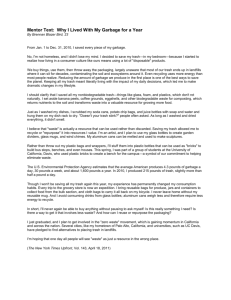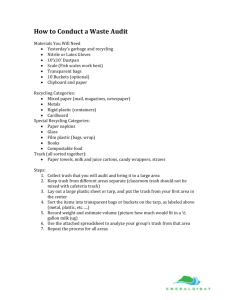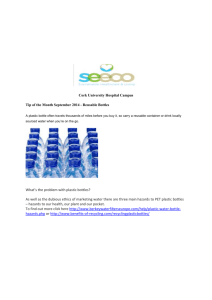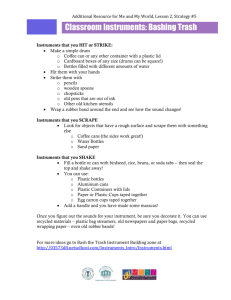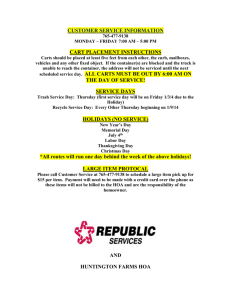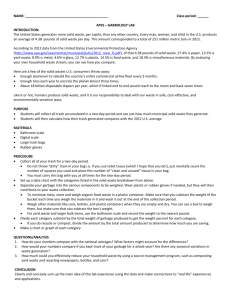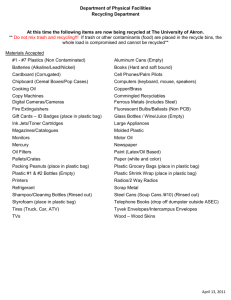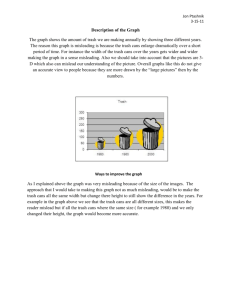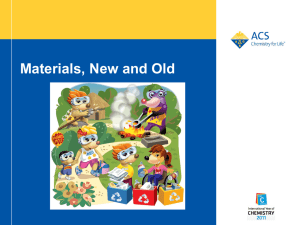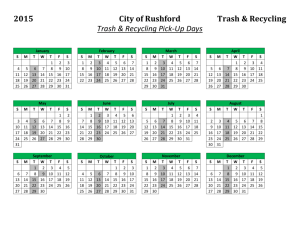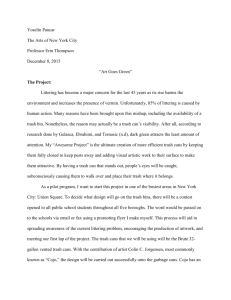Why is trash a big problem?
advertisement
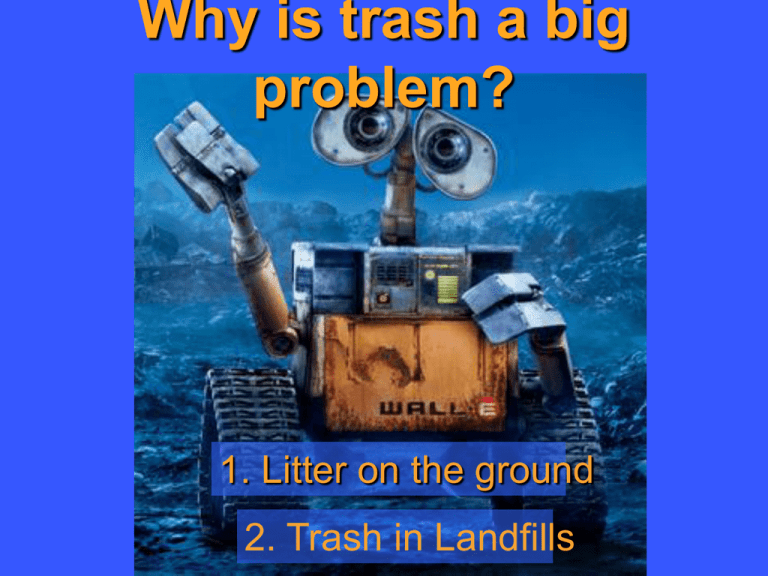
Why is trash a big problem? 1. Litter on the ground 2. Trash in Landfills Trash thrown on the ground… Ends up in our creeks… Which lead to the ocean! The ocean is FULL of Plastic! 2,000,000,000,000 pounds of What happens to the stuff we put into the trash can? A garbage truck picks it up and brings it to… …a Sanitary Landfill! A compactor packs it down. Bulldozers push it around. Does trash make anything? Yes! 1.MethaneIt heats up the world! 2. Leachates - How much trash do we make? In Santa Cruz County? 1,092,857 pounds! Every day! Does your School’s trash look like this after lunch? Is your trash can filled with these? What happens when we recycle something? How do things (cans, bottles, paper) get recycled? QuickTime™ and a TIFF (Uncompressed) decompressor are needed to see this picture. Front loaders dump it onto conveyor belts People sort recyclables at the MRF Machines also sort recyclables. QuickTime™ and a Motion JPEG OpenDML decompressor are needed to see this picture. This machine sorts plastic bottles QuickTime™ and a Motion JPEG OpenDML decompressor are needed to see this picture. After it is sorted, it is crushed into cubes Just like Wall-E did! Companies buy the cubes of crushed cans and make new cans out of them! Recycling helps the planet! It saves an enormous amount of… 1. Energy (oil) 2. Natural resources (like trees, mountains, water, air, soil) 3. And reduces pollution! What does it take to make an aluminum can? aluminum can We can eliminate FOUR of the seven steps when we recycle. What can be recycled? 1. All Hard Plastic containers: yogurt cups, food trays; water bottles Plastic utensils (put them in a bag); Plastic Take-out food containers, laundry detergent bottles, 2. All Metal (tin, aluminum cans & foil, pet food cans) Aerosol cans, small metal appliances, steel, iron. 3. Glass jars, bottles+ tops to bottles (both plastic and metal tops) 4. Paper: White & colored paper, Newspaper, magazines, glossy paper, junk mail, all envelopes, catalogues, Also Juice boxes (all aseptic containers), empty Milk cartons & frozen food packaging and empty paper cups 5. Plastic bags – (bag your bags), bubble wrap, bread bags, ziploc bags 6. Mixed Paper: manila folders, egg cartons, telephone books, paper bags, mostly clean paper plates, butcher paper, construction paper, etc. 7. Cardboard: cardboard boxes (flattened), paperboard, cereal boxes 8. Assorted: Batteries (put them in a sealed bag), What you do makes a difference for all of us! Thank You
